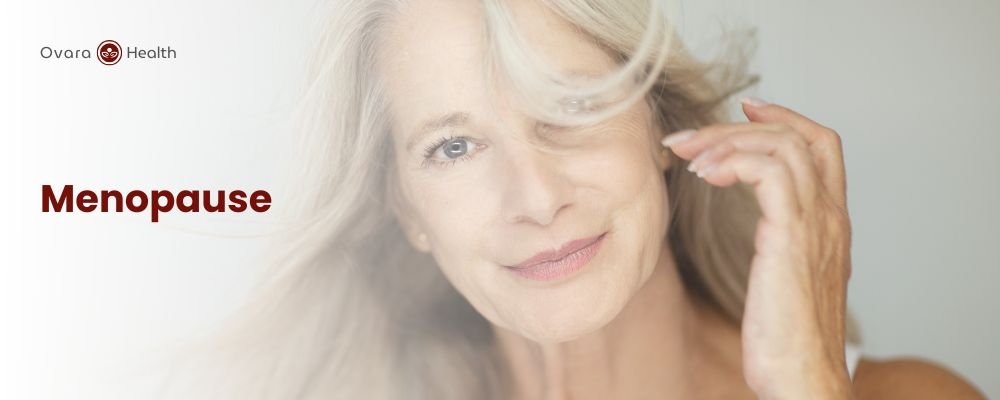Menopause is a natural stage in a woman’s life, marking the end of menstrual cycles and reproductive years. It typically occurs between the ages of 45 and 55, with the average age in the UK being 51. Menopause happens when oestrogen levels decline, leading to a range of symptoms that can affect both physical and emotional well-being. At Ovara Health, we offer specialist menopause care, providing tailored support to help women manage symptoms and maintain a high quality of life.
-
Now Offering Night Doctor GP Services
Available Friday to Sunday | 7 PM – 11 PM
- BOOK NOW
274 Fulham Road, Chelsea Walk, London, SW10 9EW
- CONTACT US

Menopause – Expert Care and Support at Ovara Health
What Are the Signs of Menopause?
Menopause is officially diagnosed when a woman has not had a period for 12 consecutive months. However, the transition often begins years earlier in a phase known as perimenopause, where hormonal fluctuations cause noticeable changes. Common symptoms include:
- Hot flushes and night sweats
- Irregular periods or heavy bleeding before periods stop
- Mood swings, anxiety, and low mood
- Sleep disturbances and fatigue
- Vaginal dryness and discomfort during intercourse
- Reduced libido (sex drive)
- Weight gain and changes in metabolism
- Joint pain and muscle aches
- Brain fog, forgetfulness, and difficulty concentrating
These symptoms vary from woman to woman, with some experiencing only mild discomfort, while others may find them significantly disruptive to daily life.
Understanding Perimenopause and Postmenopause
The perimenopausal phase can start several years before menopause, with symptoms fluctuating as hormone levels decline. During this time, periods may become irregular, heavier, or lighter before eventually stopping altogether.
Postmenopause refers to the years following menopause, where symptoms may continue, but the risk of long-term health conditions such as osteoporosis and heart disease increases due to lower oestrogen levels.
How Is Menopause Diagnosed?
Menopause is usually diagnosed based on symptoms and age, but in some cases, blood tests may be recommended to check hormone levels and rule out other conditions. At Ovara Health, our specialists provide comprehensive menopause assessments, including:
- Hormonal blood tests to check oestrogen, progesterone, and FSH (follicle-stimulating hormone) levels
- Bone density scans to assess osteoporosis risk
- General health screenings to evaluate heart health, weight changes, and other related concerns
Treatment Options for Menopause
Menopause is a natural process, but for those struggling with severe symptoms, a range of treatments can help improve well-being. At Ovara Health, we offer individualised treatment plans, including:
- Hormone Replacement Therapy (HRT) – The most effective treatment for menopausal symptoms, helping to balance hormone levels and alleviate hot flushes, mood swings, and vaginal dryness.
- Non-Hormonal Treatments – For women who cannot or prefer not to take HRT, alternative options such as cognitive behavioural therapy (CBT), herbal supplements, and dietary adjustments may help manage symptoms.
- Lifestyle and Nutritional Support – Maintaining a healthy diet, regular exercise, and stress management techniques can improve energy levels and reduce the impact of symptoms.
- Vaginal Oestrogen Therapy – Helps relieve vaginal dryness, discomfort, and urinary symptoms associated with menopause.
- Bone Health and Heart Care – Support and guidance on protecting bone density and reducing cardiovascular risks in postmenopause.
Emotional Well-being and Menopause
Menopause can also affect mental health, leading to anxiety, depression, and low self-esteem. At Ovara Health, we provide emotional and psychological support, including counselling and referrals to menopause specialists who can help you navigate this transition with confidence.
Book a Menopause Consultation at Ovara Health
If you are experiencing symptoms of menopause and need expert advice, Ovara Health is here to support you. Our specialists offer comprehensive menopause care, including tailored treatment options and lifestyle guidance to help you feel your best. Book an appointment today and take control of your menopause journey with confidence and expert care.